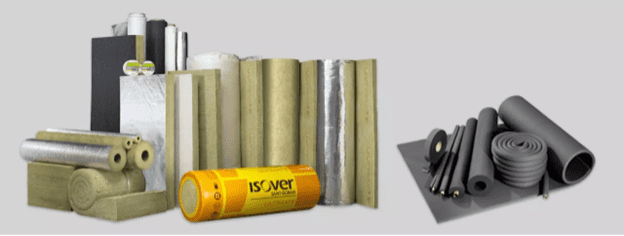Materials Used in Insulation Installation: A Guide by Koala Insulation

When it comes to insulating your home or office, the materials used can make all the difference in terms of comfort, energy efficiency, and long-term savings. At Koala Insulation of the Midlands, we specialize in providing top-quality insulation installation services, using the best materials for your needs. In this blog, we will explore the most common materials used in insulation, their benefits, and how they contribute to a well-insulated building.
Understanding the Importance of Insulation
Before diving into the different materials, it’s essential to understand why insulation is so important. Proper insulation helps to regulate indoor temperatures, keeping your home warmer in the winter and cooler in the summer. It also reduces energy consumption by preventing heat from escaping or entering your home. Insulation can lower utility bills, improve comfort, and even enhance soundproofing.
At Koala Insulation of the Midlands, we provide professional insulation services, ensuring that your home stays comfortable year-round while keeping your energy costs in check.
Common Materials Used in Insulation Installation
1. Fiberglass Insulation
Fiberglass insulation is one of the most common and widely used materials for both residential and commercial insulation. It consists of tiny glass fibers that are woven together to form a dense, yet lightweight material. There are two main types of fiberglass insulation: batts and blown-in.
Benefits:
- Excellent thermal performance
- Cost-effective
- Fire-resistant
- Easy to install
Fiberglass insulation is particularly useful for attics, walls, and floors. It is known for its ability to reduce heat loss and prevent unwanted noise from traveling through walls.
2. Spray Foam Insulation
Spray foam insulation is an advanced material that provides superior air sealing. It is applied as a liquid and expands upon application, filling gaps and crevices to create an airtight barrier. This makes spray foam insulation one of the most efficient materials for preventing heat transfer.
Benefits:
- Superior air sealing properties
- High R-value per inch
- Moisture-resistant
- Long-lasting
Though more expensive than fiberglass, spray foam is ideal for homeowners looking for the highest level of energy efficiency. It is commonly used in hard-to-reach areas and can be applied to irregular surfaces, making it a versatile option.
3. Cellulose Insulation
Cellulose insulation is made from recycled paper products, primarily newspapers. It is treated with fire retardants and blown into spaces such as attics and walls. This eco-friendly material is not only a sustainable option but also highly effective at reducing heat loss.
Benefits:
- Made from recycled materials
- Excellent soundproofing qualities
- Good air barrier properties
- Cost-effective
Cellulose insulation is ideal for those looking for an environmentally conscious option, as it is biodegradable and provides a high R-value for energy efficiency.
4. Rigid Foam Insulation
Rigid foam insulation is a solid, foam-based material that is often used for insulating exterior walls, roofs, and foundations. It comes in sheets or boards and provides a high level of insulation with minimal thickness.
Benefits:
- High R-value per inch
- Moisture-resistant
- Lightweight and easy to handle
Rigid foam insulation is great for areas that are exposed to moisture, such as basements or foundations. Its durability and effectiveness make it an excellent option for exterior applications.
5. Rock Wool (Mineral Wool) Insulation
Rock wool insulation is made from natural rocks and minerals, and it is known for its durability and fire resistance. It is often used in commercial buildings and homes that require both thermal and acoustic insulation.
Benefits:
- Fire-resistant
- Moisture-resistant
- Soundproofing qualities
- High R-value
If you’re looking for insulation that provides both excellent thermal performance and soundproofing benefits, rock wool is a great choice. Its resistance to moisture also makes it a good option for areas like basements and crawlspaces.
6. Cotton (Denim) Insulation
Cotton insulation is made from recycled cotton fabric, often denim, and is an environmentally friendly alternative to traditional insulation materials. It is soft, flexible, and non-toxic, making it a safe option for homeowners who are concerned about chemicals in their insulation.
Benefits:
- Made from recycled materials
- Non-toxic and safe to handle
- Good thermal and soundproofing properties
Cotton insulation is ideal for those who want to reduce their environmental footprint while still benefiting from solid insulation performance.
7. Reflective or Radiant Barrier Insulation
Reflective insulation, also known as radiant barrier insulation, is designed to reflect heat away from your home. It is typically used in attics to reduce the amount of heat that enters from the sun. This type of insulation consists of a reflective material, often aluminum foil, which is placed in spaces where heat gain is a concern.
Benefits:
- Reflects radiant heat
- Reduces cooling costs
- Easy to install
Reflective insulation is especially useful in areas with hot climates, where it helps to maintain a cooler indoor environment by reflecting the sun’s heat away.
Choosing the Right Insulation Material
Selecting the right insulation material for your home depends on several factors, including your budget, the climate in your area, and the specific areas of your home that need insulation. At Koala Insulation of the Midlands, we provide expert advice to help you choose the best insulation material that suits your needs. Whether you’re looking for the highest energy efficiency, eco-friendly options, or something more budget-friendly, we can guide you through the decision-making process.
Conclusion
Proper insulation is crucial for maintaining comfort, reducing energy consumption, and enhancing the overall value of your home. The materials you choose for your insulation installation will impact its effectiveness and longevity. At Koala Insulation of the Midlands, we use only the highest quality materials for your insulation needs, ensuring optimal performance.
If you’re ready to improve the energy efficiency of your home, call us at (803) 728-6082 or visit our website for a free estimate. Our team is here to help you find the perfect insulation solution for your property!
Find Your Location


Get a quote


